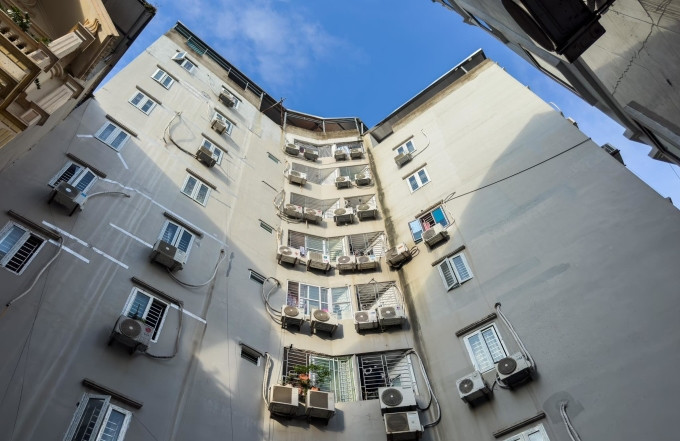Individuals who want to build mini apartments for sale or rent must meet the conditions to be investors in housing construction projects, according to the draft Law on Housing (amended) submitted to the National Assembly.
The National Assembly will discuss the draft Law on Housing (amended) after receiving and revising it on October 26. In the report explaining and receiving the draft Law on Housing (amended) submitted to the National Assembly, the National Assembly Standing Committee said that many localities have recently had lax management, lack of inspection and failure to promptly handle violations of mini apartments. This has led to consequences, overloading the urban infrastructure system, utilities serving daily life and posing a potential risk of fire and explosion. In fact, there have been a number of fires causing serious damage to people and property.
Therefore, the revised Housing Law, after receiving and revising, proposes a plan to "tighten" the development, management and use of this type of housing.
Accordingly, individuals who want to build mini apartments (houses with 2 floors or more, each floor has an apartment design, or 2 floors and a scale of 20 apartments or more) for sale or rent must meet the conditions to be the investor of a housing construction project. Construction investment is carried out in accordance with the law on housing construction projects. Transactions of sale, lease-purchase, and rental of apartments are carried out in accordance with the provisions of the Housing Law and the Law on Real Estate Business. Certificates for each apartment are carried out in accordance with the Land Law.
For individuals building mini-apartments (houses with 2 floors or more and less than 20 apartments per floor) for rent, the investment must meet the construction standards of the Ministry of Construction. The building must be designed, approved for fire prevention and fighting, and implement fire prevention and fighting safety management measures according to regulations.
Management and operation of mini apartments must comply with the regulations on management and use of apartment buildings issued by the Minister of Construction.

A mini apartment complex in Cau Giay district, Hanoi, September 2023
In addition, the bill also adds a prohibition on the development of multi-storey, multi-apartment housing by individuals in violation of the provisions of this law; transitional provisions to ensure the rights of the people and not legalize violations in the development of mini-apartments.
Specifically, in the case where each apartment in a mini apartment building has been granted a Certificate, the owner of this apartment must still exercise the rights according to the provisions of the law on housing.
In case the house violates the regulations on construction and fire prevention, it will be handled. Apartments in mini-apartments are not granted Certificates; the handling of housing transactions is carried out according to the Civil Code.
Previously, at the June meeting, there were opinions that the above regulation would cause the rampant construction of mini apartments in large cities. This would lead to the risk of urban development planning being disrupted, causing loss of aesthetics and failure to ensure infrastructure and fire safety. Therefore, it was proposed not to issue certificates for each apartment and that this type of apartment could only be rented out, with the homeowner being responsible for management and operation.
However, according to the National Assembly Standing Committee, this is not a new regulation but has existed since 2010 and was legalized in the Housing Law 2014. On the other hand, this type of housing meets the needs of urban residents when the number of social housing "supply does not meet demand". Many developed countries in the world also have mini apartment complexes in large cities for people with low and middle incomes.
The "mini apartment" model has flourished in big cities like Hanoi and Ho Chi Minh City, but it has not been officially mentioned in legal documents on housing and real estate business. The current Housing Law does not define mini apartments, only mentioning individual houses, apartment buildings, and social housing. Therefore, the management of mini apartments currently still has a legal gap. However, according to many experts in the industry, with mini apartments solving the housing needs of millions of people, we should find ways to manage them instead of banning them.
According to VnExpress